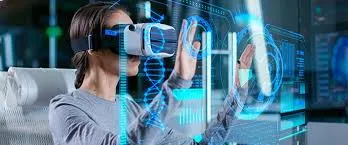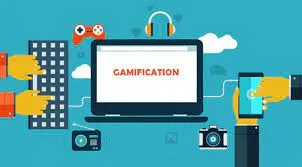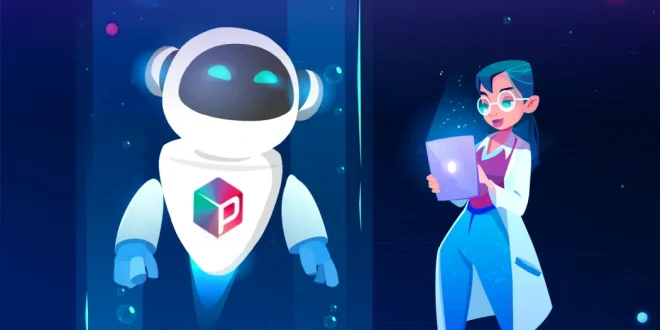Last Updated on October 19, 2025 by Muhamed Elmesery
Technologies related to education are going through a period of acceptance and prosperity, especially, during and after the corona pandemic that became part of the regular curriculum.
Virtual labs now are one of the most effective educational solutions that are used in higher education and schools to improve the active learning results and student engagement.
In this article, we will focus on the virtual labs role in the future of higher education and also the future of schools.
Get started Praxilabs for FREE
Table of Contents
Future of Higher Education
Higher education leadership and academia are incorporating more virtual lab related options with real-time guidance and feedback. According to a global survey conducted by the World Economic Forum (WEF) on what higher education will look like in 2025, 72 percent of over 27,500 respondents predict that hybrid learning models will be the norm by 2025.
Virtual labs stimulate students to use critical thinking by making the decisions in all the steps of the experiment. By learning when and how to take action in an immersive 3D simulation, the experience can help in the future when students need to make a decision in real-life scenarios. This way of learning is more effective than just trying to memorize something.
Learning by virtual environments provides exciting and more effective learning experiences. The result of these global trends in higher education is
- Increasing student engagement.
- Better student retention and attraction.
- Better grades.

Current Trends in Higher Education 2022
Last years, we have started to notice examples of true reform that seeks to address the root causes of the education challenges. Below are some of current trends in higher education 2022:
-
Learning Anywhere and Anytime
When universities all over the world had to abruptly pivot to online teaching, the learning results suffered across the education spectrum. However, the experiment with online teaching did force a reexamination of the concepts of space and time in the education process.
There were some benefits to students learning at their own pace, and conducting science experiments in the virtual labs. Hybrid learning does not just mean combining a physical and virtual classroom, but allowing for experiential, interactive, and immersive learning, enabling students to apply concepts learned in the classroom out in the real world.
PraxiLabs Helps You Conduct Science Experiments Anywhere Via 3D Interactive Virtual Labs..
-
Replacing Lectures with Active Learning Methods
Despite lectures being considered as an efficient way of teaching used for centuries as cost-effective methods for imparting professors’ knowledge to their students, education institutions need to demonstrate effective learning outcomes and to start to embrace teaching methods that rely on principles and methods like real learning, emotional learning, and the application of knowledge.
Education institutions should accept these methods that are known as ‘fully active learning.’ There is evidence that it not only improves learning outcomes but also reduces the education gap with socio-economically disadvantaged students.
-
Using Formative Assessment instead of High-Stake Exams
-
Staying Relevant
That means teaching skills that remain relevant in a changing world as we need to teach skills that remain relevant in new, changing, and unknown contexts.
Future Trends in Higher Education
In the future, we will see new trends in higher education that depend on methods like immersive technologies, artificial Intelligence, and personalized learning which will be seen even more in the future.
Now we will discuss some of these new trends in higher education (future trends in higher education):
-
Distance and Hybrid Learning Will Grow
Distance and hybrid learning are one of the future trends that have been accelerated by the presence of COVID-19 pandemic, urging education institutions to rely on technologies that provide an opportunity for teachers and students to complete the educational process regularly.
After the pandemic, educational institutions realized the importance of distance learning and its effectiveness in the continuation of the educational process in any cases of emergencies and for better and more engaged learningduring .
-
Immersive Technologies

Technologies such as Virtual Reality, Metaverses, Augmented Reality, Artificial Intelligence, and Gamification for learning will continue to grow and combine with each other to be at the service of education. There are very high expectations about the use of these technologies though.
-
Education Could Be Personalized According to Students Needs
Education in the future could be much more personalized and adaptive according to students and their needs, depending on the use of Artificial Intelligence and technologies, as well as guidance from teachers themselves, aided by technology.
-
Educational Partnerships to Face Global Challenges
The future will bring with it a greater number of partnerships between universities and educational organizations and companies to increase and improve the quality of education and solve global issues.
It’s already started! PraxiLabs team has started a lot of partnerships with universities in Egypt, the United kingdom, United states, Saudi Arabia, Philippine, Liberia, and more..
-
Overlap between Skills-Based Learning and Traditional Degree-Based Learning
In the near future, we will see a trend towards mixing skills-based learning and traditional degree-based learning. There will always be students seeking to get the traditional grade-learning programs.
However, other students will look for something more advanved, more beneficial to them on the long run. Skills-based learning has some many advantage: it enables them to get career progression opportunities and to enter the workforce quickly in a short period of time and at an effective cost.
As a result, higher education institutions like universities will start investing a greater proportion of their budgets into career development programs and skills-based learning that reach and equally attract more students.
-
Education Promoting Entrepreneurship
As the future of work will be different and professions are changing, It’s important to have entrepreneurial skills to adapt to these changes. these skills that are usually picked up by entrepreneurs will be increasingly vital in the education of the future.
-
Mental Health Will Play a Vital Role
Mental health is very important and should be encouraged by education institutions that share this main goal: to recognize that students are people, not robots, and therefore, should be allowed the mental space necessary. Distance learning, especially when used for a long period of time, has made it clear that mental health plays a very important role in student performance.
Virtual Labs Role in the Future of Higher Education (The Importance)
Virtual Labs Role in the Future of Higher Education is that it pushes students to use critical thinking and make all the decisions. In an immersive simulation, students learn when and how to take action. In the future, these experiences will help them when they need to make a decision in real-life scenarios. Learning by immersive technologies is more effective than just trying to memorize something.
These teaching shift trends like virtual labs mark the beginning of a virtual education future, a part of the instruction model and blended learning. It is important to remember that collaborating and learning in virtual environments prepare students with the skills that they need for the careers they will have to face in the future.
A lot of universities, colleges, and educational institutions have already adopted virtual labs as they recognize the vital role of virtual environments in increasing the active learning and the student engagement.
In PraxiLabs, we provide highly interactive and immersive 3D simulations that mimic real-life labs. And while our focus is on scientific correctness and proper representation of labs, we also provide further support and guidance through our supplementary material and immediate feedback to not only exercise specific steps of an experiment but to also experience and learn about the experiment for a better understanding.
PraxiLabs also provides instant and unlimited access to any STEM lab simulations you want from anywhere, without the hassle of going to the laboratory. Let your young scientists enjoy their journey, at any time!
 PraxiLabs A virtual world of science
PraxiLabs A virtual world of science






